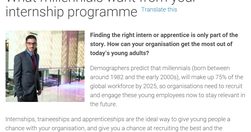Filter 1295 resources:
- social media (437)
- facebook (337)
- disinformation (252)
- news (188)
- media (179)
- algorithm (110)
- filter bubble (100)
- twitter (96)
- blogging (81)
- psychology (79)
- community (79)
- medium (75)
- trust (68)
- curation (63)
- ai (56)
- bloggingportal (55)
- us2020 (55)
- comments (54)
- trump (52)
- identity (50)
- blog (46)
- content strategy (46)
- promotion (46)
- troll (45)
- politics (43)
- publicsphere (43)
- linkedin (41)
- polarization (39)
- factchecking (39)
- eu (35)
- journalism (34)
- fediverse (34)
- tool (33)
- privacy (32)
- science (27)
- conspiracy (26)
- democracy (25)
- regulation (25)
- content marketing (25)
- covid19 (25)
- us (24)
- ocm (24)
- censorship (23)
- productivity (23)
- newsletter (22)
- instant articles (22)
- google (22)
- storytelling (21)
- snapchat (20)
- cognitive (19)
- metrics (18)
- bot (18)
- advertising (18)
- communications (18)
- video (17)
- populism (17)
- instagram (17)
- groupthink (17)
- moderation (16)
- science communication (16)
- cambridge analytica (16)
- authenticity (16)
- engagement (16)
- open web (16)
- multilingualism (16)
- atprotocol (15)
- innovation (15)
- propaganda (15)
- delegitimise (15)
- social marketing (15)
- semantic (15)
- web20 (15)
- bluesky (15)
- ai4communities (14)
- brexit (14)
- google+ (14)
- mastodon (13)
- myhub (13)
- addiction (13)
- design (13)
- enewsletter (12)
- viral (12)
- platform (12)
- post-truth (12)
- ethics (11)
- marketing (11)
- strategy (11)
- qanon (11)
- surveillance (11)
- hate (11)
- decentralised (11)
- outreach (11)
- backfire effect (10)
- audiovisual (10)
- echo chamber (10)
- realtime (10)
- bloggingportal2 (10)
- attentionweb (10)
- tribe (10)
- mobile (10)
- bxlsbbl (9)
- content (9)
- hoax (9)
- deletefacebook (9)
- native advertising (9)
- russia (9)
- domestic (9)
- science journalism (9)
- crowdsourcing (8)
- creativity (8)
- minimalist (8)
- media literacy (8)
- usa (8)
- augmented reality (8)
- longform (8)
- guide (8)
- blogpocalypse (8)
- narcissism (7)
- vote (7)
- free speech (7)
- ello (7)
- persuasion (7)
- twitter migration (7)
- transparency (7)
- psychometrics (7)
- fblabrats (7)
- machine learning (7)
- business model (7)
- influence (7)
- knowledge management (7)
- collective intelligence (6)
- signaltonoise (6)
- clickbait (6)
- suppress (6)
- participation (6)
- llm (6)
- brand (6)
- truth (6)
- b2b4me (6)
- gdpr (6)
- audience research (6)
- open source (6)
- image (6)
- activitypub (6)
- blogger (6)
- seo (6)
- framework (6)
- visual (6)
- bullshit (6)
- climate (6)
- nlp (6)
- policy (6)
- antivaxxer (5)
- yanss (5)
- outrage (5)
- pr (5)
- cory doctorow (5)
- startup (5)
- confirmation bias (5)
- sceptic (5)
- podcast (5)
- campaign (5)
- gtd (5)
- humour (5)
- society (5)
- antitrust (5)
- partisan (5)
- stream (5)
- chatgpt (5)
- moments (5)
- gender (5)
- search (5)
- deep fake (5)
- personal (5)
- happiness (5)
- ux (5)
- debunk (4)
- chat (4)
- author (4)
- reddit (4)
- ec (4)
- fbpaper (4)
- interactive (4)
- cookies (4)
- evidence-based policy (4)
- blogactiv (4)
- employee engagement (4)
- inoculation (4)
- top3pods (4)
- brussels bubble (4)
- crm (4)
- 2ndbrain (4)
- data (4)
- substack (4)
- culture (4)
- facebook live (4)
- zettelkasten (4)
- blm (4)
- organisation (4)
- bbc (4)
- eurosceptics (4)
- amp (4)
- learning (4)
- app (4)
- threads (4)
- election (4)
- bias (4)
- europe (4)
- editorial (4)
- youtube (4)
- event (4)
- apple (4)
- atprotocol lexicon (3)
- network theory (3)
- solid (3)
- internal communications (3)
- ea (3)
- europa (3)
- scuttlebutt (3)
- machine text (3)
- live (3)
- share (3)
- meme (3)
- trending (3)
- machine translation (3)
- cozyweb (3)
- buzzfeed (3)
- australia (3)
- interoperability (3)
- signal2noise (3)
- indieweb (3)
- rss (3)
- blockchain (3)
- analytics (3)
- (3)
- dni (3)
- elon musk (3)
- local (3)
- massive.wiki (3)
- sentiment analysis (3)
- narratives (3)
- publishing (3)
- headline (3)
- letters2eu (3)
- jeff jarvis (3)
- joan westenberg (3)
- api (3)
- big data (3)
- fail (3)
- infopocalypse (3)
- rebelmouse (3)
- idpi (3)
- motivated (3)
- publication (3)
- wikipedia (3)
- english (3)
- infowar (3)
- paper (3)
- screencast (3)
- pay4content (3)
- meaning (3)
- mobocracy (3)
- nytimes (3)
- training (3)
- livestream (3)
- gpt-x (3)
- dissonance (3)
- uk (3)
- micro.blog (2)
- mindfulness (2)
- copyright (2)
- eparticipation (2)
- amazon (2)
- fear (2)
- euractiv (2)
- comment (2)
- renee diresta (2)
- web3 (2)
- expertise (2)
- management (2)
- obama (2)
- hr (2)
- knowledge graph (2)
- prezi (2)
- newsfeed (2)
- livefyre (2)
- credibility (2)
- data visualisation (2)
- ep (2)
- persona (2)
- cms (2)
- gamification (2)
- tumblr (2)
- europcom (2)
- ipr (2)
- flicc (2)
- antiviral (2)
- filter (2)
- expert (2)
- supergirl (2)
- mojo (2)
- buffer (2)
- interface (2)
- youth (2)
- guru (2)
- wiki (2)
- ft (2)
- writing (2)
- web2.0 (2)
- misinform (2)
- eurocrap (2)
- sublime (2)
- bandwagon (2)
- counter speech (2)
- bundle (2)
- farcaster (2)
- government (2)
- twitterenvy (2)
- newsroom (2)
- evolution (2)
- china (2)
- klout (2)
- robert putnam (2)
- futurism (2)
- digital natives (2)
- vine (2)
- radio (2)
- network (2)
- eurosceptic (2)
- faceted search (2)
- model collapse (2)
- inscrutable (2)
- future (2)
- ruben verborgh (2)
- adversarial interoperability (2)
- unfinished (2)
- ideation (2)
- fascism (2)
- planetary (2)
- publicsector (2)
- roi (2)
- hoaxy (2)
- values (2)
- tiktok (2)
- memex (2)
- pluralistic ignorance (2)
- optimisation (2)
- paywall (2)
- ahoy2025 (2)
- iot (2)
- competition (2)
- arg (2)
- collaboration (2)
- aggrefilter (2)
- information (2)
- automation (2)
- crisis (2)
- network effect (2)
- how to (2)
- metaverse (2)
- history (2)
- tv (2)
- web design (2)
- discourse (2)
- data journalism (2)
- seenthis (2)
- education (2)
- listicle (2)
- lobbying (2)
- blogtour (2)
- civil rights (2)
- conversation (2)
- online architecture (2)
- pink slime (2)
- authoritarianism (2)
- tools (2)
- themes (2)
- postmodern (2)
- monopoly (2)
- euroblog (2)
- computational propaganda (2)
- fomo (2)
- theme (2)
- euractiv-com (2)
- posse (2)
- middleware (1)
- morality (1)
- k4p (1)
- digital transformation (1)
- infographic (1)
- visualisation (1)
- project management (1)
- virtual reality (1)
- framing (1)
- powerpoint (1)
- cmv (1)
- reality (1)
- consultation (1)
- meditation (1)
- liberalism (1)
- ngo (1)
- business (1)
- garden (1)
- willpower (1)
- journal (1)
- seamful (1)
- leadership (1)
- nudge (1)
- behaviour (1)
- memory (1)
- polbot (1)
- metaphor (1)
- fakebox (1)
- knowledge panel (1)
- wikitribune (1)
- define (1)
- mvp (1)
- opinion (1)
- purpose (1)
- design thinking (1)
- software (1)
- spambot (1)
- crowdfunding (1)
- demographics (1)
- geopolitics (1)
- power (1)
- eaststratcom (1)
- egovernment (1)
- meeting (1)
- honesty (1)
- email (1)
- omission (1)
- reflectivity (1)
- dunning-kruger (1)
- kek (1)
- overton window (1)
- airbnb (1)
- tourism (1)
- perception (1)
- cards (1)
- quora (1)
- 360video (1)
- cor (1)
- religion (1)
- schema.org (1)
- ibm (1)
- open data (1)
- law (1)
- biology (1)
- milo (1)
- tutorial (1)
- meritocracy (1)
- edelman (1)
- immigration (1)
- slow news (1)
- storyful (1)
- european (1)
- negativity bias (1)
- philosophy (1)
- homophily (1)
- truth psychology (1)
- “illusory (1)
- transmedia (1)
- coda (1)
- sponsored content (1)
- italy (1)
- disruption (1)
- social capital (1)
- scandinavia (1)
- career (1)
- facial blindness (1)
- capgras (1)
- health (1)
- emotion (1)
- altright (1)
- library (1)
- rationality (1)
- referrals (1)
- spectacles (1)
- glass (1)
- impact (1)
- telegram (1)
- rantic (1)
- dark pattern (1)
- ambassador (1)
- technocracy (1)
- democrats (1)
- mixed reality (1)
- atlantic (1)
- lobby (1)
- intranet (1)
- datamining (1)
- upday (1)
- samsung (1)
- adblock (1)
- sidewire (1)
- syndication (1)
- centralised (1)
- slideshare (1)
- epsc (1)
- text (1)
- bestof2015 (1)
- monetisation (1)
- plagiarism (1)
- fiction (1)
- partnership (1)
- internet (1)
- tag (1)
- pitch (1)
- spain (1)
- essena (1)
- support (1)
- polls (1)
- guidelines (1)
- hootsuite (1)
- fuego (1)
- nuzzle (1)
- river4 (1)
- indignation (1)
- slidecast (1)
- story (1)
- web (1)
- ssi (1)
- economics (1)
- networking (1)
- wellness (1)
- open science (1)
- nasa (1)
- diverse (1)
- millennials (1)
- game theory (1)
- technology (1)
- traffic (1)
- apathy (1)
- responsive (1)
- photography (1)
- scraping (1)
- hive (1)
- trove (1)
- planning (1)
- hbr (1)
- trends (1)
- social login (1)
- liveblogging (1)
- lgbt (1)
- boredom (1)
- corporate journalism (1)
- shieldlaw (1)
- shortform (1)
- icebucketchallenge (1)
- isismediablackout (1)
- twitter cards (1)
- survey (1)
- paid (1)
- content partnership (1)
- buzz (1)
- portal (1)
- timeline (1)
- anonymity (1)
- taxonomy (1)
- length (1)
- cpms (1)
- rdf (1)
- linked data (1)
- smo (1)
- tabloid (1)
- upworthy (1)
- python (1)
- right (1)
- seeding (1)
- expiration (1)
- governance (1)
- tackk (1)
- white papers (1)
- kickstarter (1)
- game (1)
- native (1)
- twxplorer (1)
- timing (1)
- newsana (1)
- newscred (1)
- muckread (1)
- pinterest (1)
- social fiction (1)
- profile (1)
- mtf (1)
- information architecture (1)
- vandenbrande (1)
- cultural exchange (1)
- mybot (1)
- vlog (1)
- osmo (1)
- learn (1)
- ugc (1)
- debatehub (1)
- ep2014 (1)
- stanbol (1)
- apache (1)
- rebut (1)
- meps (1)
- scale (1)
- pilot (1)
- eesc (1)
- conform (1)
- blogosphere (1)
- disgustology (1)
- data void (1)
- ebook (1)
- eu09vs19 (1)
- adolescence (1)
- annotate (1)
- selfish (1)
- dissemination (1)
- digital civility (1)
- hosted (1)
- geofence (1)
- sociology (1)
- blackpr (1)
- cofoe (1)
- yeats (1)
- newsguard (1)
- sapiens (1)
- threadapalooza (1)
- gatsby (1)
- roamresearch (1)
- data portability (1)
- philippines (1)
- geoengineer (1)
- euvsdisinfo (1)
- nz (1)
- syllabus (1)
- research (1)
- ussr (1)
- imposter syndrome (1)
- understanding (1)
- goodwill (1)
- cancel culture (1)
- unreality (1)
- deep canvassing (1)
- circuit-breaker (1)
- cui bono (1)
- peace data (1)
- information laundering (1)
- plandemic (1)
- ginsburg (1)
- section230 (1)
- participatory culture (1)
- splinternet (1)
- fleeting (1)
- parler (1)
- diaspora (1)
- filecoin (1)
- gab (1)
- blocklist (1)
- trust net (1)
- sensemaking (1)
- clubhouse (1)
- spaced repetition (1)
- deplatform (1)
- ghost (1)
- mental health (1)
- myanmar (1)
- anonymous (1)
- crosspost (1)
- floc (1)
- standards (1)
- w3c (1)
- crowdtangle (1)
- plato (1)
- label (1)
- flipboard (1)
- fedwiki (1)
- presidency (1)
- andy matuschak (1)
- dunbar (1)
- eu-treaty-institutions (1)
- eu-priorities-and-opinion (1)
- semanticweb (1)
- social-media (1)
- publicsectorinformation (1)
- lisp (1)
- yellow-card (1)
- eurosplinternet (1)
- specialised (1)
- hungarian (1)
- accreditation (1)
- khub (1)
- nft (1)
- wallet (1)
- cooperatives (1)
- multisig (1)
- pkm (1)
- procrastination (1)
- 3p framework (1)
- pkgbook (1)
- fotl (1)
- pattern language (1)
- intimacy (1)
- small is beautiful (1)
- digital garden (1)
- dark forest web (1)
- binggpt (1)
- version control (1)
- agent (1)
- quit (1)
- douglas rushkoff (1)
- znlive (1)
- nostr (1)
- enshittification (1)
- meaning alignment institute (1)
- gpt-4o (1)
- channel (1)
- patchwork (1)
- anuj ahooja (1)
- new public (1)
- pluriverse (1)
- vsop (1)
- pubhub (1)
- public affairs (1)
- will storr (1)
- richard dawkins (1)
- dopamine (1)
- arena (1)
- o1 (1)
- consent (1)
- whitewind (1)
- insurrection (1)
- blacksky (1)
- ahoy (1)
- save social (1)
- altmetric (1)
- anisota (1)
- renée diresta (1)
- open letter (1)
- age verification (1)
- laurens hof (1)
Relevant Overviews
- Communication Strategy
- Content Strategy
- Online Strategy
- Online Community Management
- Social Media Strategy
- Content Creation & Marketing
- Online Architecture
- Digital Transformation
- Personal Productivity
- Innovation Strategy
- Communications Tactics
- Psychology
- Social Web
- Media
- Politics
- Communications Strategy
- Science&Technology
- Business
Overview: Social Web
Relevant resources
What started as 10 things from 5 publishers you trust has turned into 20 things from publishers competing for your attention ... the savviest publishers realize that the cheapest way to produce more is to repackage the work of others. So the quality of the average thing in your feed is getting worse... The social media site ... keeps track of what…

There is no public measure of your ego on Snapchat. No “54 likes” 13469 followers or “423 comments”. When your reader sees your post it doesn’t tell him or her the size of your ego.It’s a huge difference with LinkedIn, Facebook or Twitter. Those three keep reminding you how important the person you’re reading is ... the Snapchat user doesn’t care …

On Tuesday, the American people will see a multi-platform streaming and social broadcast of the State of the Union that reflects the ways people experience live events in 2016. We’ll be reaching people where they are — and making it possible for them to engage, respond, and share the President’s speech themselves in new and different ways... vide…

bringing new technology into the newsroom to change how the outlet commissions and publishes opinion pieces ... expand the coverage beyond just text, into visual story formats that can be accessed and shared across different platforms.... the FT's comment section is a "huge source of strength and a very valuable asset".... a new Facebook commu…
Facebook’s news feed algorithm can be tweaked to make us happy or sad; it can expose us to new and challenging ideas or insulate us in ideological bubbles... The algorithm’s rankings correspond to the user’s preferences “sometimes,” Facebook acknowledges... not the success rate you might expect A glimpse into its inner workings sheds light ... on…

“print dollars have turned into digital dimes, which are turning into mobile pennies.” Basically, even as we consume more news than ever, thanks to mobile’s proliferation, the revenue streams are actually diminishing... Where’s the money going to then, you ask? To Facebook, Google, and Twitter, the winners on mobile...As publishers turn more and …

Facebook already accounts for a huge proportion of the web traffic to major media sites. And publishers are rushing even further into its embrace because they have no choice and can’t think of a better option... ad blocking is taking care of what’s left of the media’s ambitions to continue as standalone entities... there are rays of hope in the …

Publishers like the New York Times should be having an existential crisis over Facebook’s instant articles. Instead they’re embracing them.. digital content is being divided between a lucrative high-end entertainment world,... and a low-end publishing world where content is expected to be “free,” ... a model that... might work to BuzzFeed’s adv…

society had a pretty straightforward system of rewards: you give us something of value, and we’ll heap praise on you. It’s a fair trade ... that most social media gurus ... are unwilling to make ... insist on trying to “hack” the system... sheer laziness... shortcuts to notoriety rather than slowly, painstakingly, lovingly crafting something of va…

the power of Facebook’s algorithmic News Feed... doesn’t show users everything their friends post, and so Facebook can demand a toll from publishers for placement in the stream. Today that toll looks like simply programming content to the algorithm, tomorrow it looks like publishing Instant Articles, and maybe next year it looks like paying Facebo…

If there’s anything that goes some way to explaining Trump’s popularity in the midst of his quasi-fascistic views that reached a nadir with his call to ban all Muslims from entering the United States, it is his social media prowess. Trump has more than 5.5 million Twitter followers and 4.5 million Facebook fans. He has a presence across YouTube, V…

Here are 8 tips for using Medium effectively:

The EC set up Drop’pin to help young people find training, apprenticeship and intern opportunities across Europe. I did some content marketing (blogging, enewsletter, social media support) and developed a global CRM strategy.
By 2016, most content will be consumed ... on other people’s platforms... Snapchat Discover, Facebook Instant Articles, and Apple News... Google AMP is coming soon, and it will provide an Instant-like experience for not only Google users but also those using Twitter, Pinterest, and other platforms

Trump is what happens when social media becomes the platform for discourse.

for anyone outside Facebook’s Partner Publisher network, the new feature can be somewhat confusing.
We sift through the academic journals so you don’t have to. Here are 10 of the most interesting studies about social and digital media published in 2015.

the Internet now seems to be on constant boil... extremists of all stripes are ascendant, and just about everywhere you look, much of the Internet is terrible...social networks seem to be feeding a cycle of action and reaction. In just about every news event, the Internet’s reaction to the situation becomes a follow-on part of the story, so that …

people today are inundated with more bullshit now than ever before... We presented approximately 800 participants across four studies with statements ranging from the mundane to the meaningful. We included some bullshit too... People who were more religious, more likely to believe in the paranormal, and more accepting of alternative medicine were…
not much drives traffic as effectively as stories that vindicate and/or inflame the biases of their readers... specifically tries to invent stories that will provoke strong reactions in middle-aged conservatives. They share a lot on Facebook... they’re the ideal audience. institutional distrust and cognitive bias are so strong that the people who…
the big media institutions knew that they really couldn’t leave their business models, they were locked in... there really is an open question to whether digital journalism will replace the profit margins of traditional journalism... one huge issue in journalism today is how a couple places, particularly Facebook, are becoming a major source of…

a new wave of “homeless” media companies that don’t require a home page; their sole purpose is to syndicate content.... With native content consumption on third-party platforms growing, will it still be relevant for media companies to invest significant resources on running and maintaining their websites and mobile apps?
blogs and Twitter drive two-thirds of content flow. Mainstream media has become a catalyst that blogs and Twitter drive. Responsive Experience Tops Responsive Design: ... preparing for 10 types of customers ... you know who they are via their search terms ... content changes to meet their needs. We must know who they are and start building…

taking us towards what an American legal scholar, Frank Pasquale, has christened the “black box society”... subtitle – “the secret algorithms that control money and information” ... it’s not just about money and information but increasingly about most aspects of contemporary life... we know that Facebook algorithms can influence the moods and t…

Over 40 new resources ... some great longreads to enjoy as the nights grow long, the productivity tips you’ll need to find the time to read them, and a free set of steak knives. The Christmas season, after all, is almost upon us.

While the platform has long been a bastion of visual storytelling, it has also been historically lax with its limitations on gratuitous writing and hashtagging. That all changed today... An epidemic of hashtag fatigue is coming... The first step was de-prioritizing the hashtag in discovery feeds. The next step is burying it in yours... To e…

The brain’s craving for novelty, constant stimulation and immediate gratification creates a “compulsion loop”... we need more and more to get the same effect. Endless access to new information also easily overloads our working memory. When we reach cognitive overload, our ability to transfer learning to long-term memory significantly deteriorates.…

Making ‘a net positive contribution to people’s lives’ doesn’t necessarily satisfy investors... it’s possible to imagine regulation that actually expands users’ choices. It doesn’t need to be especially invasive or dramatic, and it would be designed to give users more control over their experiences online... Here are three things we could do…

For Jay Rosen... Blogging is doing your work in public… For me it’s slightly different – this is where I do my thinking in public

Just as you’re about to publish your draft, we’ll suggest a couple tags for you to use based on what you’ve writte... to increase the number of tagged posts on Medium, but also to help users discover the right tags to use... In our algorithm, we use what is called a nearest neighbors approach... to compare posts... representing posts as vector…
Loading more...
Relevant Overviews
- Communication Strategy
- Content Strategy
- Online Strategy
- Online Community Management
- Social Media Strategy
- Content Creation & Marketing
- Online Architecture
- Digital Transformation
- Personal Productivity
- Innovation Strategy
- Communications Tactics
- Psychology
- Social Web
- Media
- Politics
- Communications Strategy
- Science&Technology
- Business